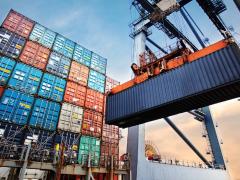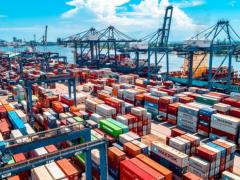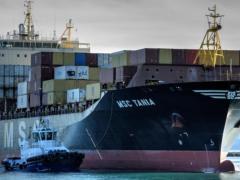The dry bulk sector has taken a notable hit from heightened political uncertainty, with many charterers adopting a cautious, wait-and-see attitude throughout the early months of 2025, a sector specialist based in Panama has said.
Political and economic risk has blindsided the shipping market in the first half of the year, necessitating a smarter approach by industry to the second half of the year, Thomas Zaidman has said.
The managing director of Sagitta Marine told Asia Shipping Media that passivity was no longer a viable strategy.
The shipping industry’s traditional herd mentality – charging towards optimism and withdrawing swiftly in the face of bad news – proved woefully inadequate in navigating today's sustained “perma-crisis”, he said.
The current business environment marries an uninspiring macroeconomic outlook with short-term volatilities so severe that they verge on causing market paralysis. Rather than chasing headlines or speculating on the future direction of trade policy influenced by fleeting news cycles, the industry must focus on the tangible cards currently in hand.
Market reactions to tariffs, United States Trade Representative (USTR) port call fees, sanctions risk and political interference, have been knee-jerk at best, generating volatility that often spikes before promptly correcting. Moreover, many analyses overemphasise conflict-driven premiums, overlooking the broader market fundamentals.
The brief escalation of violence between Iran and Israel was widely lumped together with ongoing instability around the Strait of Hormuz and the Red Sea, ignoring the broader geopolitical realities unfolding in the Black Sea and Baltic regions – areas equally critical to global trade, security, and safety.
Economic policies are increasingly wielded as tools of performative posturing rather than genuine shifts. The muted market response to repeated US tariff threats on Mexico illustrates this well: trading partners have alternatives, and supply chains are seldom overhauled based on threats alone without risking long-term harm.
In dry bulk specifically, the political uncertainty has prompted many charterers to hold back through much of the first quarter, reflecting reluctance to engage amid unclear trade policies. However, as the year has progressed, the market has begun to recognise that US trade policy extends beyond transactional actions to a highly performative theatre.
Shipping unquestionably serves globalisation, yet this does not preclude operators from exercising prudence, learning from past administrations, or anticipating economic-driven –rather than purely political – demand shifts. The ongoing purchase of US grain by China alongside alternative sourcing from Brazil and Argentina is a prime example.
The noise of ‘what-if’ scenarios regarding grains and other commodities is a distraction from the business realities and deal-making processes that persist despite geopolitical rhetoric.
The dry bulk market has arguably absorbed its lessons during the first half of 2025: passivity is not an option, nor is futile guesswork on unpredictability. Instead, accepting uncertainty as a constant and positioning portfolios accordingly is the way forward.
While the market increasingly reacts to short-term shocks, this volatility can still be traded successfully by operators who grasp the fundamentals and manage their risk judiciously. The underlying market dynamics remain intact; only the intensity of risk has heightened.
Declaring political and economic uncertainty as insurmountable grounds for inaction will soon lose credibility. Perhaps it is time for contrarians to capitalise on this environment by embracing disciplined risk management. Opportunistic and savvy operators may well discover that within volatility lie significant opportunities.













